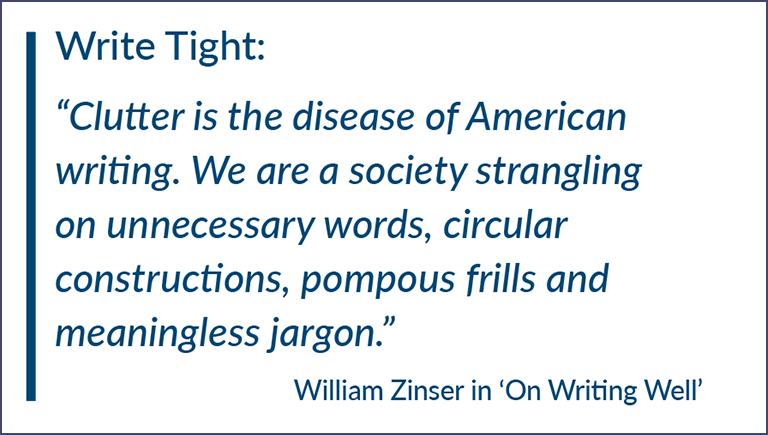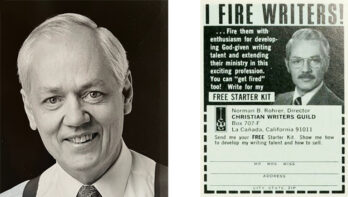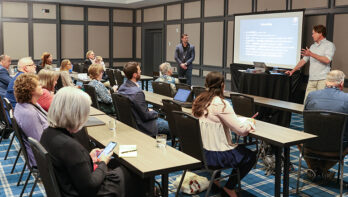
By Tez Brooks
What’s in it for me?”
That’s the question every reader asks when they skim through the pages of any publication. Whether you’re the publication’s editor or the freelancer trying to sell your work, the audience needs to know you had them in mind.
I’ve been on both sides—as a magazine editor hiring freelancers, and as a freelance contributor to several Christian publications. So, I relate to the joy of finding those special symbiotic relationships with writers who knew the kind of content we were looking for, and I understand the importance of providing quality content for those periodicals who use my services as a “work-for-hire.”
Online and traditional magazines are looking for someone with whom they can work together time and again. Someone they can count on to deliver. With that in mind let’s look at some of the vital elements that make an article shine—a piece that satisfies the audience to think, “Now that’s a great read!”
Know the publication
Read several back copies and absorb their voice and tone. Get acquainted with their audience freelancers, and the organization (if any) behind the magazine, so you don’t pitch an idea that doesn’t relate to their cause. A Reformed denominational magazine doesn’t want your article supporting free-will theology.
Guidelines
Publishers, have you provided submission guidelines that are easily accessible and make sense to freelancers? Often, we editors think we’ve given good directions but haven’t asked a third party to review the guidelines for clarity. Remember to include your pay rate too. Making the freelancer work too hard to get the info they need sends a message that we don’t value their expertise and time. Do your part to attract the best writers for your publication’s content by providing unencumbered instructions.
Likewise freelancers, the submission guidelines are not suggestions—follow them completely. Editors are more inclined to reject a beautifully written article merely because they don’t have time to correct what the author fails to do. And if you meet your deadline early, even if you’re not the best writer, the client will often choose to work with you over a better freelancer because you are reliable.
Everyone happy?
As an editor with the magazine’s best interests in mind, you can adjust the piece to serve the publication’s needs and standards. You’re not obligated to ask permission for every little edit as long as it doesn’t change the basic message or the author’s style. Your goal is to make both the magazine and the writer look impressive. At times that means correcting their grammar or rearranging paragraphs for clarity.
That being said, freelancers if you want to avoid a diva reputation, be careful not to be too picky about others touching your work, especially if they are purchasing the work from you. They own it now, so unless the edits drastically alter your intended meaning, let it go.
If the changes to your article reduce the quality or change the message to a point where you’re embarrassed to attach your name to it, kindly ask if they will use a pseudonym rather than expect them to find another article. Be aware, that because it was your decision (not theirs) to withdraw your work, this may not make you eligible for a kill fee.
Grab the reader
Unless it’s an online article needing good search engine optimization (SEO), avoid using the first paragraph to summarize what you’re about to tell us. Either way, that first line needs to have punch. Try dropping readers in the middle of the action rather than using back story. An author friend of mine calls those unnecessary preambles, “throat-clearing.”
Try startling your audience with a shocking statistic. One article began with, “This year, over 7,000 missionaries will leave their calling. That’s almost 20 missionaries a day throwing in the towel.”
Create intrigue with a powerful question or call the reader out. “I know your secret. You’re sick and tired of homeschooling, aren’t you?”
Consider revealing a character arch with something like “With my sermon outline in my briefcase, I walked down the alley where a year ago I’d overdosed on cocaine.”
Make it shine
Freelancers, make sure to organize the information so readers can easily make connections between your points. Use headings and subheadings if possible.
We mustn’t skimp on research, writers. Be the expert by interviewing others to enrich the project with compelling stories and engaging dialogue.
Develop trust with your readers by being transparent/vulnerable and using a conversational tone. Come alongside readers to avoid preachy tones.
Publishers appreciate someone who can write tight. Shorter paragraphs and concise sentences will make magazine staff love you. Strip sentences to the minimum. Watch for elevated, long-winded language that reads like a textbook.
Publishers, you have not because you ask not. Encourage freelancers to provide enhancements to make the article robust. There’s no reason for your in-house writers to create those when freelancers already have supplemental content they’d love to use like sidebars, discussion questions, quizzes, quotes, and fun facts.
Writers remember, for online articles, impress your client by using hyperlinks that point the reader to other content on that publisher’s website. But don’t overuse hyperlinks, it overwhelms and distracts the reader. Keep them engaged in your article, not someone else’s.
Wrapping up
Try to provide practical takeaways the reader can do. A call to action (CTA) is not always necessary but at least end with something thought-provoking like a question, a quote, or statistic.
Above all, address any loose ends and deliver what you promised in your title. A reader can feel cheated if the article doesn’t fulfill what the main heading implies.
Don’t get too creative with your title. You want it to grab them but still be clear about the content, especially for SEO.
The conclusion can summarize the main point of the article, or not. If you’ve provided a clear and memorable message there’s not always a need to review. Still, wrap it up in a satisfying way. I love to come full circle and mention something from an earlier analogy in the piece. It puts a nice bow on it.
Finally, and most importantly freelancers, pray before you write, and publishers, pray before you print. None of what we do matters if we’re not asking God to help us do our best for his glory. Because the Lord is also asking, “What’s in it for me?”
As a multiple award-winning author, filmmaker, and international speaker, Tez Brooks’ work appears in Guideposts, Power for Living, CBN.com, Clubhouse, Focus on the Family, and more. Christianity.com featured him in “50 Authors You Should Know.” Tez is a member of Colorado Authors League and Word Weavers Intl. He and his wife live in Colorado. Learn more at tezbrooks.com.
Posted Dec. 3, 2024





